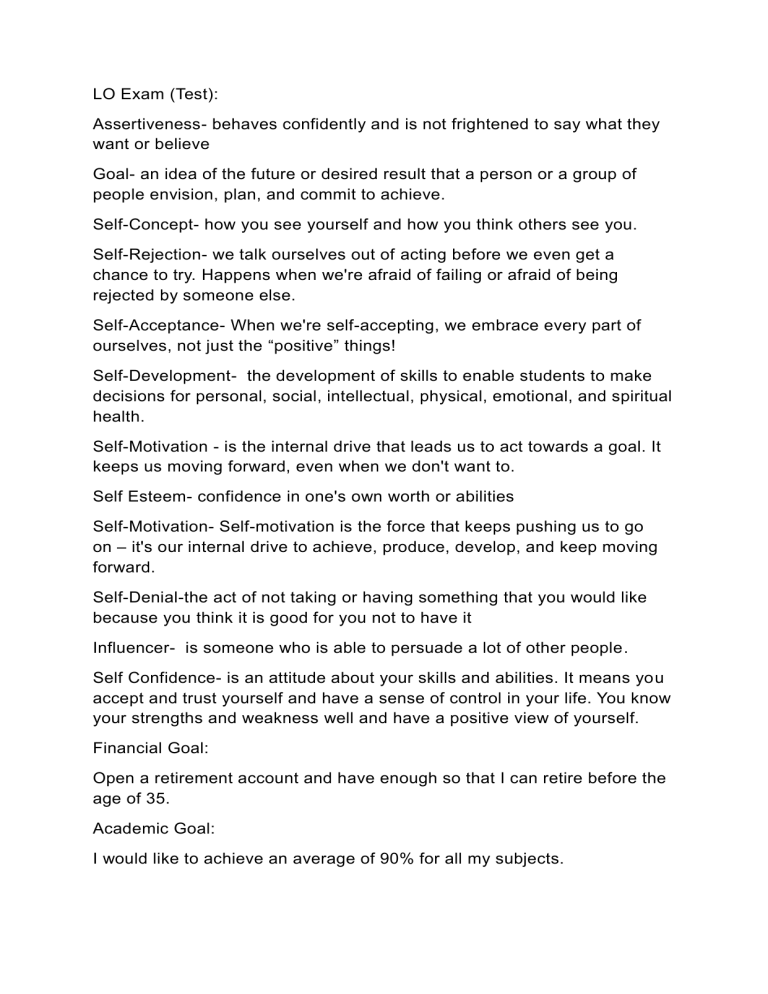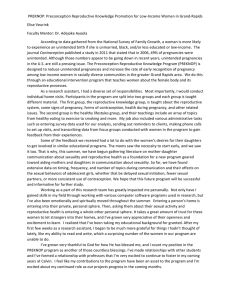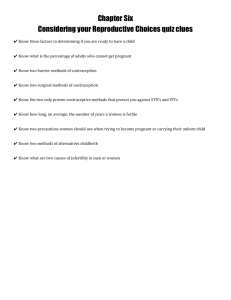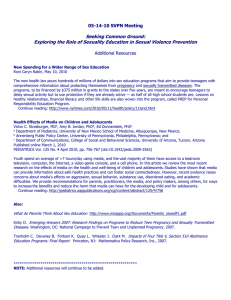
LO Exam (Test): Assertiveness- behaves confidently and is not frightened to say what they want or believe Goal- an idea of the future or desired result that a person or a group of people envision, plan, and commit to achieve. Self-Concept- how you see yourself and how you think others see you. Self-Rejection- we talk ourselves out of acting before we even get a chance to try. Happens when we're afraid of failing or afraid of being rejected by someone else. Self-Acceptance- When we're self-accepting, we embrace every part of ourselves, not just the “positive” things! Self-Development- the development of skills to enable students to make decisions for personal, social, intellectual, physical, emotional, and spiritual health. Self-Motivation - is the internal drive that leads us to act towards a goal. It keeps us moving forward, even when we don't want to. Self Esteem- confidence in one's own worth or abilities Self-Motivation- Self-motivation is the force that keeps pushing us to go on – it's our internal drive to achieve, produce, develop, and keep moving forward. Self-Denial-the act of not taking or having something that you would like because you think it is good for you not to have it Influencer- is someone who is able to persuade a lot of other people. Self Confidence- is an attitude about your skills and abilities. It means you accept and trust yourself and have a sense of control in your life. You know your strengths and weakness well and have a positive view of yourself. Financial Goal: Open a retirement account and have enough so that I can retire before the age of 35. Academic Goal: I would like to achieve an average of 90% for all my subjects. Personal Goal: Improve my time management skills Religious Goal: I will pray God everyday when I wake up and ask for forgiveness and a blessed day. Ways to improve self-esteem: Practice Self-Compassion: Treat yourself with kindness and understanding, especially during times of failure or difficulty. Acknowledge your imperfections without harsh self-judgment. Set Realistic Goals: Break down larger goals into smaller, achievable tasks. Celebrate your progress along the way, no matter how small. Challenge Negative Thoughts: Recognize and challenge negative self -talk. Replace self-criticism with more realistic and positive affirmations. Focus on Strengths: Identify your strengths and talents, and actively use them in your daily life. Remind yourself of past successes and accomplishments. Take Care of Yourself: Prioritize self-care activities that promote physical, emotional, and mental well-being. This includes getting enough sleep, eating nutritious foods, exercising regularly, and engaging in activities you enjoy. Set Boundaries: Learn to say no to commitments or relationships that drain your energy or undermine your self-esteem. Surround yourself with supportive and uplifting people. Practice Gratitude: Cultivate an attitude of gratitude by regularly acknowledging the things in your life that you are thankful for. Keep a gratitude journal or simply take a few moments each day to reflect on the positive aspects of your life. Seek Support: Don't hesitate to reach out to friends, family, or a therapist for support and encouragement when needed. Sharing your struggles with others can help alleviate feelings of isolation and shame. Learn New Skills: Invest in personal and professional development by learning new skills or pursuing hobbies that interest you. Building competence in areas of interest can boost confidence and self-esteem. Celebrate Yourself: Take time to celebrate your achievements, no matter how small they may seem. Acknowledge your progress and give yourself credit for your efforts. Causes of Teenage Pregnancy: Lack of Education: Limited access to comprehensive sexual education programs can leave teenagers uninformed about contraception, reproductive health, and the consequences of unprotected sex. Peer Pressure: Pressure from peers to engage in sexual activity, especially if it's seen as a rite of passage or a way to fit in, can lead to unintended pregnancies. Low Socioeconomic Status: Teenagers from low-income families may face greater challenges accessing reproductive health services, including contraception and prenatal care. Economic hardship can also contribute to a lack of future prospects, leading some teenagers to view pregnancy as a means of finding purpose or stability. Family Dynamics: Dysfunctional family environments, including neglect, abuse, or lack of parental supervision, can increase the likelihood of early sexual activity and unintended pregnancies. Media Influence: Media portrayal of sex and relationships, often glamorizing teenage pregnancy or presenting unrealistic expectations about contraception and consequences, can influence teenagers' attitudes and behaviours. Substance Abuse: Substance abuse, including drugs and alcohol, can impair judgment and increase the likelihood of engaging in risky sexual behaviours that can lead to pregnancy. Cultural and Religious Beliefs: Cultural or religious beliefs that discourage or stigmatize contraception and premarital sex may inhibit teenagers from seeking reproductive health services or using contraception effectively. Early Puberty: Early onset of puberty in some adolescents may lead to sexual experimentation at younger ages, increasing the risk of unintended pregnancies. Lack of Access to Contraception: Limited access to contraception due to factors such as cost, transportation barriers, or restrictive policies can increase the likelihood of unprotected sex and unintended pregnancies. Lack of Future Orientation: Some teenagers may have limited aspirations for their future, leading to a lack of motivation to prevent pregnancy or invest in contraception. a. To get an NSC pass you need your 40% minimum for your home language and 40% for another 2 subjects – you can fail a subject – even your first additional language – but you must then get 30% or more for the other 6 making a total of 6 passes. b. Diploma pass requirements: Must obtain at least 40% for your Home Language, Must obtain at least 40% for three other subjects excluding Life Orientation, Must obtain at least 30% in the Language of Learning and Teaching (LOLT) of the tertiary institution (Higher Education Institution), c. Bachelor Pass Requirements: 40% for your Home Language. 50% for four other High Credit subjects, excluding Life Orientation. 30% for two other subjects. Factors that are detrimental to every relationship: Poor Communication: Communication is vital in any relationship. Lack of effective communication, including failure to express needs and feelings, or frequent misunderstandings, can erode trust and intimacy. Lack of Trust: Trust forms the foundation of healthy relationships. Issues such as dishonesty, betrayal, or suspicion can undermine trust and create tension. Unresolved Conflict: Conflict is inevitable in relationships, but when not addressed constructively, it can escalate and create resentment. Avoiding conflict or resorting to unhealthy conflict resolution tactics, such as criticism or stonewalling, can damage the relationship. Unmet Expectations: Unfulfilled expectations regarding roles, responsibilities, or emotional support can lead to disappointment and frustration. Lack of Intimacy: Emotional and physical intimacy are essential for maintaining a strong bond. Factors such as stress, busy schedules, or unresolved conflicts can hinder intimacy and lead to emotional distance. Individual Differences and Incompatibilities: Differences in values, interests, or life goals can strain a relationship if not addressed and respected. Incompatibility in areas such as communication styles or emotional needs can also create challenges. Infidelity: Infidelity, whether emotional or physical, can cause significant damage to a relationship, leading to feelings of betrayal, insecurity, and loss of trust. Lack of Appreciation and Support: Feeling unappreciated or unsupported by a partner can erode self-esteem and lead to resentment. It's important for partners to acknowledge and validate each other's contributions and needs. Financial Stress: Financial problems, such as debt, unemployment, or disagreements about money management, can cause tension and strain on a relationship. External Stressors: External factors such as work pressure, family issues, or health problems can impact the dynamics of a relationship and increase stress levels. Substance Abuse: Substance abuse issues, including alcohol or drug addiction, can disrupt communication, trust, and overall relationship stability. Rights: Respect: Both partners have the right to be treated with respect and dignity at all times. This includes respecting each other's opinions, boundaries, and autonomy. Communication: Each partner has the right to open, honest, and effective communication. This involves expressing thoughts, feelings, and needs openly and respectfully, as well as being listened to and understood by the other partner. Safety: Both partners have the right to feel physically and emotionally safe in the relationship. This includes being free from threats, intimidation, and violence. Equality: Both partners have the right to be treated as equals in the relationship, regardless of gender, race, ethnicity, sexual orientation, or other factors. Decisions should be made collaboratively and with mutual respect for each other's perspectives. Privacy: Each partner has the right to privacy and personal space. This includes respecting each other's boundaries, confidentiality, and autonomy. Consent: Both partners have the right to give and withdraw consent freely in all aspects of the relationship, including sexual activity, physical affection, and shared decisions. Responsibilities: Respect: Both partners have a responsibility to treat each other with kindness, empathy, and consideration. This involves avoiding behaviors such as verbal abuse, manipulation, or control. Communication: Both partners have a responsibility to communicate openly and honestly with each other. This includes actively listening, expressing thoughts and feelings clearly, and addressing issues constructively. Trust: Both partners have a responsibility to build and maintain trust in the relationship. This involves being reliable, keeping promises, and acting with integrity. Support: Both partners have a responsibility to support each other emotionally, mentally, and physically. This includes offering encouragement, empathy, and assistance during times of need. Shared Decision-Making: Both partners have a responsibility to participate in decision-making processes and to consider each other's perspectives and needs. This involves compromise, negotiation, and collaboration. Conflict Resolution: Both partners have a responsibility to resolve conflicts and disagreements in a constructive and respectful manner. This includes avoiding blame, criticism, and escalation, and instead seeking compromise and understanding. Personal Growth: Both partners have a responsibility to support each other's personal growth and development. This involves encouraging each other's interests, goals, and aspirations, and providing encouragement and feedback. Right to Life: Every individual has the right to life and to live in conditions that support their well-being and dignity. Right to Liberty and Security: Individuals have the right to be free and secure from arbitrary arrest, detention, or imprisonment. Freedom from Torture and Inhumane Treatment: No one should be subjected to torture, cruel, inhuman, or degrading treatment or punishment. Freedom from Discrimination: Every person is entitled to equal treatment and protection under the law, regardless of race, ethnicity, gender, religion, nationality, disability, or other status. Right to Freedom of Expression: Individuals have the right to freedom of opinion and expression, including the freedom to seek, receive, and impart information and ideas through any media. Right to Privacy: Every individual has the right to privacy and protection from arbitrary interference with their privacy, family, home, or correspondence. Right to Education: Everyone has the right to education, which should be free, compulsory, and directed to the full development of the human personality. Right to Work and Just Conditions of Employment: Individuals have the right to work, to just and favorable conditions of work, and to protection against unemployment, discrimination, and exploitation in the workplace. Right to Health: Every person has the right to the highest attainable standard of physical and mental health, including access to healthcare services, sanitation, and clean water. Right to Freedom of Religion or Belief: Individuals have the right to freedom of thought, conscience, and religion, including the freedom to practice, worship, and observe religion or belief of their choice.


